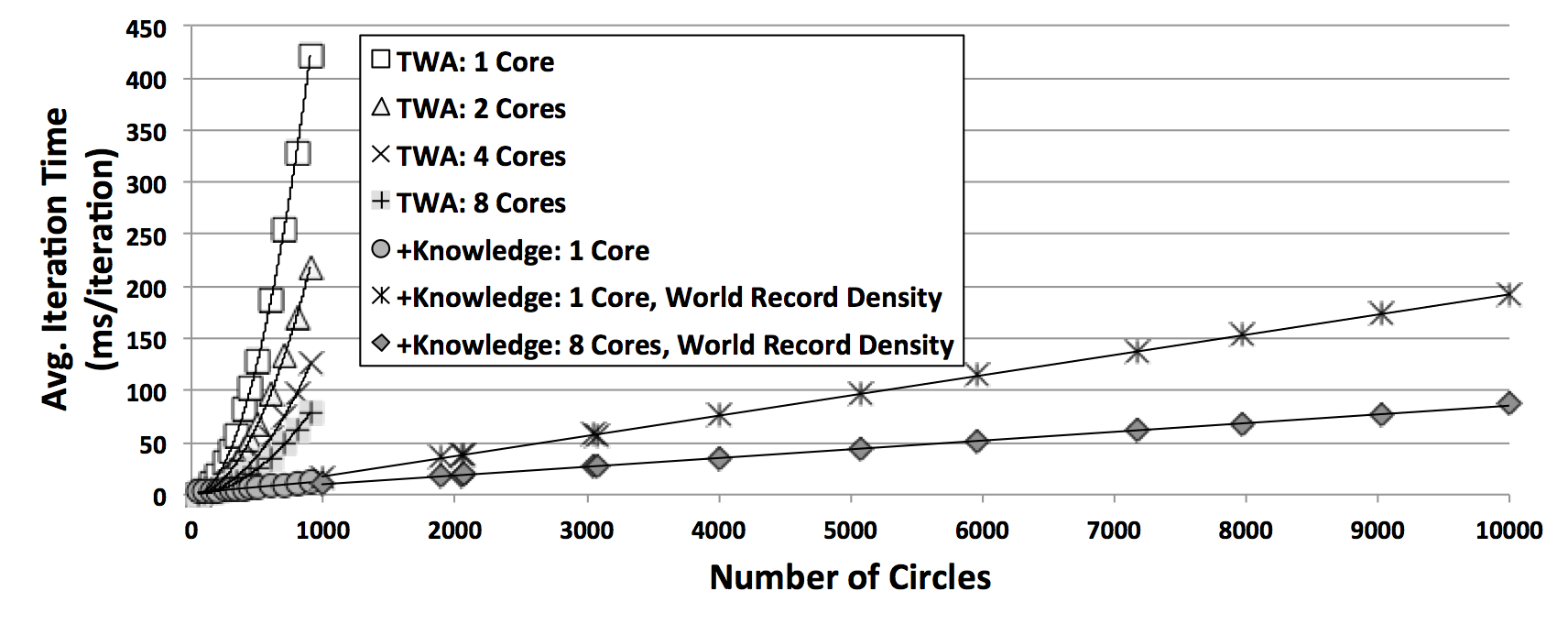Scalable Methods to Integrate Task Knowledge with the Three-Weight Algorithm for Hybrid Cognitive Processing via Optimization
In this paper, we consider optimization as an approach for quickly and flexibly developing hybrid cognitive capabilities that are efficient, scalable, and can exploit task knowledge to improve solution speed and quality.
April 30, 2014
Biologically Inspired Cognitive Architectures Journal 2014
Authors
Nate Derbinsky (Disney Research)
Jose Bento Ayres Pereira (Disney Research)
Jonathan Yedidia (Disney Research)
Scalable Methods to Integrate Task Knowledge with the Three-Weight Algorithm for Hybrid Cognitive Processing via Optimization
In this paper, we consider optimization as an approach for quickly and flexibly developing hybrid cognitive capabilities that are efficient, scalable, and can exploit task knowledge to improve solution speed and quality. Given this context, we focus on the Three-Weight Algorithm, which is interruptible, scalable, and aims to solve general optimization problems. We propose novel methods by which to integrate diverse forms of task knowledge with this algorithm in order to improve expressiveness, efficiency, and scaling across a variety of problems. To demonstrate these techniques, we focus on two large-scale constraint-satisfaction domains, Sudoku and circle packing. In Sudoku, we efficiently and dynamically integrate knowledge of logically deduced sub-problem solutions; this integration leads to improved system reactivity and greatly reduced solution time for large problem instances. In circle packing, we efficiently integrate knowledge of task dynamics, as well as real-time human guidance via mouse gestures; these integrations lead to greatly improved system reactivity, as well as world-record-breaking solutions on very large packing problems. These results exemplify how cognitive architecture can integrate high-level knowledge with powerful optimization techniques in order to effectively and efficiently contend with a variety of cognitive tasks.

